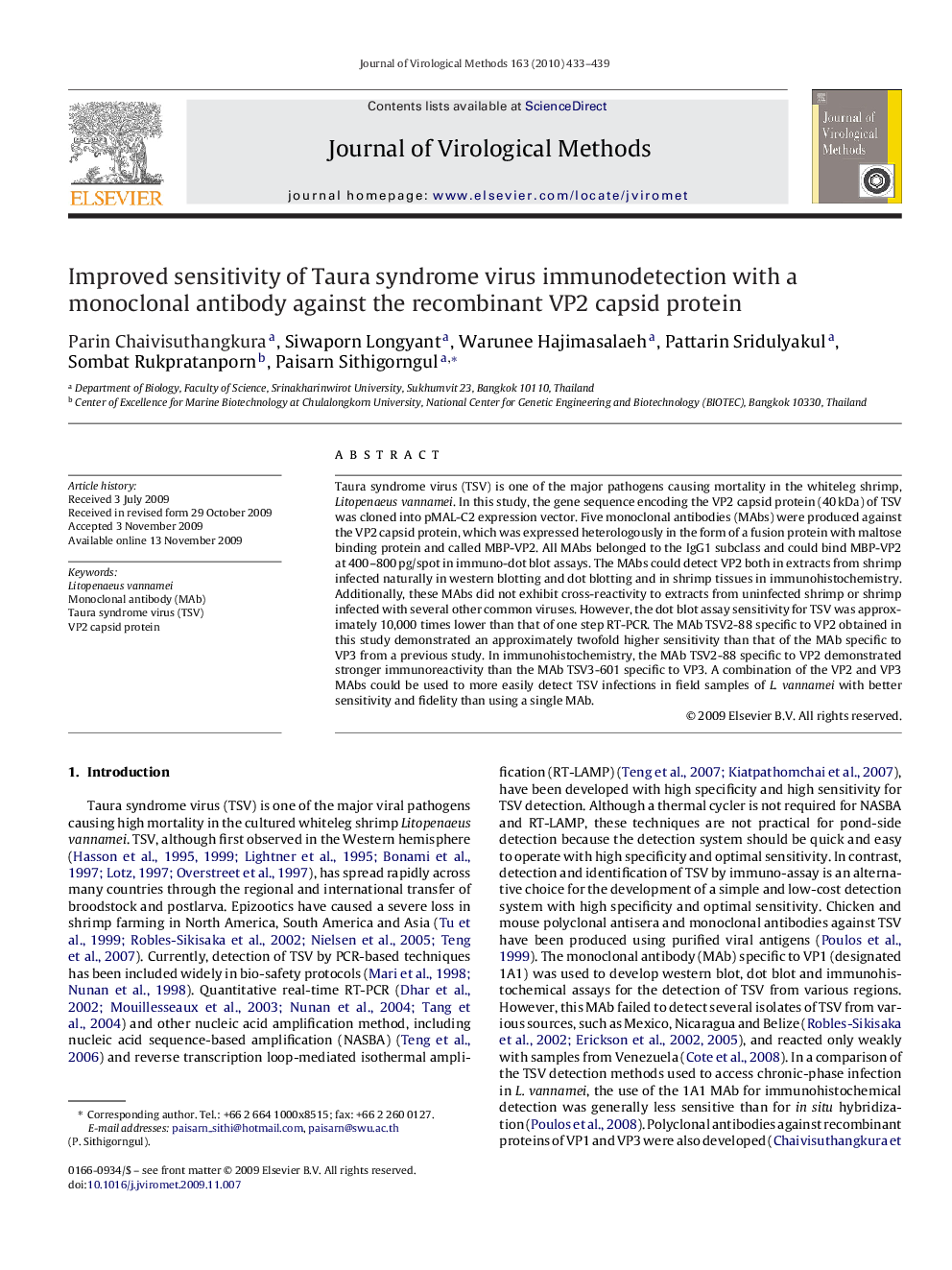| Article ID | Journal | Published Year | Pages | File Type |
|---|---|---|---|---|
| 3407355 | Journal of Virological Methods | 2010 | 7 Pages |
Taura syndrome virus (TSV) is one of the major pathogens causing mortality in the whiteleg shrimp, Litopenaeus vannamei. In this study, the gene sequence encoding the VP2 capsid protein (40 kDa) of TSV was cloned into pMAL-C2 expression vector. Five monoclonal antibodies (MAbs) were produced against the VP2 capsid protein, which was expressed heterologously in the form of a fusion protein with maltose binding protein and called MBP-VP2. All MAbs belonged to the IgG1 subclass and could bind MBP-VP2 at 400–800 pg/spot in immuno-dot blot assays. The MAbs could detect VP2 both in extracts from shrimp infected naturally in western blotting and dot blotting and in shrimp tissues in immunohistochemistry. Additionally, these MAbs did not exhibit cross-reactivity to extracts from uninfected shrimp or shrimp infected with several other common viruses. However, the dot blot assay sensitivity for TSV was approximately 10,000 times lower than that of one step RT-PCR. The MAb TSV2-88 specific to VP2 obtained in this study demonstrated an approximately twofold higher sensitivity than that of the MAb specific to VP3 from a previous study. In immunohistochemistry, the MAb TSV2-88 specific to VP2 demonstrated stronger immunoreactivity than the MAb TSV3-601 specific to VP3. A combination of the VP2 and VP3 MAbs could be used to more easily detect TSV infections in field samples of L. vannamei with better sensitivity and fidelity than using a single MAb.
